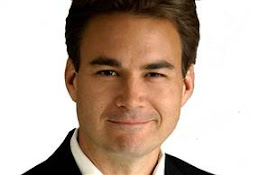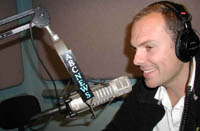American Airlines is set to lose quite a bit of money after a Boston judge ruled Skycaps from 85 airports can join a class action lawsuit against the airline.
At the heart of the ruling is an American Airlines $2 fee for curbside bag check-in at the airport. In the past, curbside check-in was considered free - but tipping the skycap was customary. Once American implemented the $2 fee, passengers assumed that covered the entire cost.
One Skycap testified that his daily tips dropped from $200 to $70.
Logan airport skycaps already won a ruling, awarding them $325,000 to be split between nine workers.
Sadly for American Airlines, their money making scheme may have backfired quite badly. If other skycaps win in this class action lawsuit, any money the airline made with the fee will probably be wiped out.
Saturday, February 6, 2010
Major Airlines Have No Responsibility Once They Contract With Regional Airlines
The National Transportation Safety Board says it's a serious but little known problem: the fact that once a major airline contracts with a regional airline to fly a route, the major airline no longer has any responsibility for that flight's crew, training or safety.
Many of the passengers on Flight 3407 assumed they were flying Continental because that's who they had booked through.
But in fact, they were flying Colgan Air, and the Department of Transportation's internal watchdog says there is a two-tiered standard for safety when it comes to airlines: one for the majors, and a different, and lower standard, for the regionals.
The NTSB says this has been a long-standing problem.
"The Safety Board is going to be looking at these relationships and the oversight and the resources associated with safety functions," said the Board's Chair, Deborah Hersman.
"Should the major airlines have oversight and responsibility for their regional carriers?"
Randy Babbitt, FAA Administrator: "These are separate corporate entities - and this wouldn't happen at the FAA this would be a DOT view - and ultimately a congressional view as to whether or not that responsibility resides with the carrier, who simply makes a commercial arrangement to carry traffic."
"But sometimes it's flown under the major's name.
"Randy Babbitt: "Oh absolutely, and that's what may inspire congress and the DOT to take another look."
And in fact, congress is taking another look - in a pending Safety Aviation Bill, the senate would place two new safety requirements for regionals:
•First, that the the majors have oversight for safety, training and maintenance when contracting with regionals.
•Second, that the FAA be required to make random safety inspections of the regionals every year.
Many of the passengers on Flight 3407 assumed they were flying Continental because that's who they had booked through.
But in fact, they were flying Colgan Air, and the Department of Transportation's internal watchdog says there is a two-tiered standard for safety when it comes to airlines: one for the majors, and a different, and lower standard, for the regionals.
The NTSB says this has been a long-standing problem.
"The Safety Board is going to be looking at these relationships and the oversight and the resources associated with safety functions," said the Board's Chair, Deborah Hersman.
"Should the major airlines have oversight and responsibility for their regional carriers?"
Randy Babbitt, FAA Administrator: "These are separate corporate entities - and this wouldn't happen at the FAA this would be a DOT view - and ultimately a congressional view as to whether or not that responsibility resides with the carrier, who simply makes a commercial arrangement to carry traffic."
"But sometimes it's flown under the major's name.
"Randy Babbitt: "Oh absolutely, and that's what may inspire congress and the DOT to take another look."
And in fact, congress is taking another look - in a pending Safety Aviation Bill, the senate would place two new safety requirements for regionals:
•First, that the the majors have oversight for safety, training and maintenance when contracting with regionals.
•Second, that the FAA be required to make random safety inspections of the regionals every year.
Subscribe to:
Posts (Atom)















